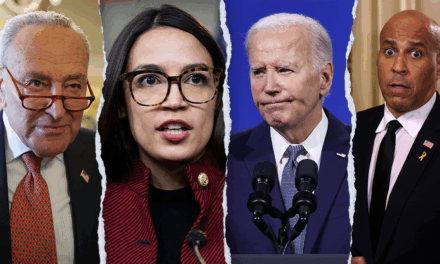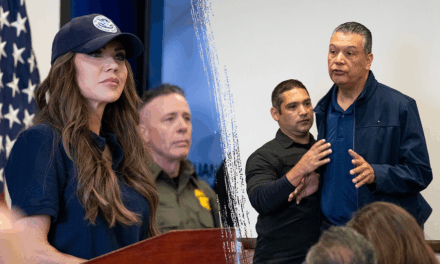The ongoing debate surrounding media bias during an era of polarized politics has taken center stage once again. At the heart of this discussion is NPR (National Public Radio), a trusted public broadcaster, who is facing increasing scrutiny and calls for defunding. NPR’s head has recently made a bold request to critics who accuse the network of having a liberal bias: “Show me a story” that substantiates these claims.
NPR, funded partially by the federal government through listener donations and corporate sponsorships, has been perceived by some as leaning left in the political spectrum. Critics argue that this perceived bias manifests itself within the stories NPR chooses to cover and the perspectives offered in its reporting. The debate has reignited amid threats of defunding from various political figures and organizations that oppose what they view as a lack of journalistic neutrality.
The financial stakes are high. NPR generates a significant amount of its revenue from federal funding, which has been a point of contention for lawmakers who believe that taxpayer dollars should not support what they label a “liberal propaganda outlet.” The call for budget cuts has become more pronounced in some circles, often linked to broader societal concerns regarding how media outlets portray political ideologies.
In response to these allegations, NPR’s leadership has taken a clear stance. During a recent public event, the head of NPR directly addressed critics by urging them to provide tangible examples that demonstrate bias in its reporting. “Show me a story, any story, that illustrates this supposed liberal bias,” they challenged, hoping to stimulate an honest discussion on media portrayal and journalistic integrity.
For many, the concept of media bias is multifaceted. It encompasses not just the reporting of facts but also the framing of issues and the selection of which stories are deemed newsworthy. Supporters of NPR argue that the network’s dedication to thorough investigative reporting and a commitment to presenting diverse viewpoints makes it a valuable resource. They contend that the outlet prioritizes accuracy and fairness in its coverage, often allowing an audience to draw their own conclusions.
Nevertheless, the concern persists among many critics that NPR serves as an echo chamber for liberal viewpoints, particularly regarding issues such as climate change, immigration, and social justice. In their eyes, the network focuses heavily on stories that align with leftist ideologies while giving minimal attention to conservative perspectives. This perceived imbalance, they argue, eclipses the notion of impartial journalism.
It is essential to understand that the issue of media bias is not isolated to NPR alone. Numerous media organizations, both on the left and right of the political spectrum, regularly face allegations of biased reporting. In this polarized landscape, parties must grapple with the ways in which media informs public opinion and political discourse. NPR’s leadership, however, remains resolute in its challenge, asserting that constructive dialogue is essential for bridging the divide.
The call for increased accountability from media institutions is a demand that resonates with the public. Viewership across platforms is often driven by a desire for content that aligns with personal ideologies, which poses a complex issue for traditional news outlets like NPR. The challenge becomes striking a balance between informing the public objectively and catering to diverse audience expectations.
To further clarify its position, NPR has developed guidelines on fairness and transparency within its reporting. These guidelines are designed to ensure that a broad spectrum of views is represented in their journalism. The leadership’s request for critics to “show me a story” stands as a call for transparency and accountability not only from NPR but also from those who would levy accusations without concrete examples.
As discussions around defunding NPR continue, the consequences of cutting federal funding for public broadcasting become apparent. The innovation and quality of reporting that emerge from organizations like NPR have enriched American journalism and provided vital perspectives on issues of national importance. The head of NPR further emphasizes that defunding could suppress diverse voices, leaving a narrower understanding of the complexities that define modern America.
The ripple effects from potential budget cuts extend beyond NPR itself. Public broadcasting plays a crucial role in shaping the media landscape, influencing how stories are told and how diverse communities are represented. The argument made by NPR’s leadership—that cutting funds will ultimately lead to less comprehensive reporting—forces society to reconsider the implications of restricting resources for public discourse.
Moving beyond grievances about perceived bias, it would be beneficial to engage in meaningful dialogue about the evolution of media consumption in the digital age. As the definitions of journalism continue to shift, news outlets face uncompromising pressures to cater to their audiences while maintaining principles of integrity and factual reporting.
Critics of NPR’s perceived bias often urge the organization to take more urgency in addressing concerns raised by those who feel marginalized by its coverage. Pushing for greater transparency and storytelling diversity is vital for restoring public trust. While KPIs (Key Performance Indicators) for news organizations may focus predominantly on ratings and viewership, relevance in the public discourse must also weigh heavily on their operational frameworks.
As the debates unfold, raising questions about the public’s expectations of journalism becomes instrumental. Should media embrace its role as a watchdog, scrutinizing all sides of the political spectrum, or is there another avenue that audiences expect—one where particular narratives may prevail? The challenge, therefore, lies in identifying the intersection between fulfilling responsibilities to diverse audiences and commitment to unwavering journalistic standards.
In a nutshell, navigating the world of media bias requires diligence from both news organizations and their audiences. Media consumers must educate themselves about the stories being told as well as critically examine multiple sources of information to foster a well-rounded understanding. Simultaneously, news organizations like NPR must confront the challenge of maintaining objectivity in their reporting while addressing concerns regarding representation brought forth by audiences. A future where biases are minimized and stories reflect the population at large must be the goal for all involved in the media landscape.
Ultimately, the conversation initiated by NPR’s leadership to address accusations of liberal bias presents a crucial moment in the broader discourse on media integrity and responsibility. As budgetary concerns loom, the imperative for quality journalism becomes clearer—one that authentically represents various perspectives, fosters dialogue, and informs public opinion with integrity.
The journey toward an inclusive media landscape demands continuous engagement and reflection from all parties engaged in this complex tapestry of storytelling. The request of NPR’s head could be seen as a rallying cry for deeper introspection, recognizing that the landscape of journalism will be best served when all voices are heard, acknowledged, and respected.
































